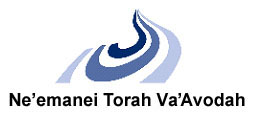Proposal for dealing with possible entry of chametz into public hospitals before and after Passover
This past year, the issue of prohibiting chametz / unleavened bread from public hospitals in Israel came into wide focus. On the one hand, the Jewish state is interested in preserving public institutions that maintain a strong Jewish character. There is a need to serve kosher for Passover food in hospitals during Passover, while respecting the feelings of hospital patients and their visitors.
In hospitals, the reality of Jewish law is complicated because the food utensils are served in the patients’ rooms. All hospital patients, Jewish and non-Jewish, religious and non-religious, may receive the food and utensils in the room. This food and the utensils can be made not kosher for Passover if the patient or visitors mix food that is not kosher that they brought into the hospital from outside premises.
This past year, the Chief Rabbinate determined that this problem requires that all chametz be completely prevented from entering the hospital. They determined that hospital guards and staff should be instructed to prevent the introduction of chametz. In practice, the Rabbinate’s instructions were aimed at preventing any food from entering the hospital not only on the festival of Passover but in the days and week leading up to the holiday.
While these instructions helped ensure that kosher standards of the hospital, they interfered with the democratic right of a person to do as he pleases. Searching someone’s bags for chametz, violates a person’s privacy rights. This is especially important to consider when we are dealing with people in frail health and their visitors who are in an emotionally fragile state due to the hospitalization of their family member or friend. We believe that the procedures ordered by the Chief Rabbinate for searching people’s bags at the hospitals for chametz may lead hatred of Judaism and the laws of Passover. In light of all this, in consultation with Halacha teachers and with people working in hospitals who are familiar with the situation on the ground, we propose the following. Public institutions in the State of Israel should be kosher for Passover so that patients and visitors can observe the holiday’s laws, but that this should be done with great sensitivity to people’s needs and without compromising the privacy of those who are not interested in observing Kosher for Passover laws during their time in the hospital.
Main points of the proposal: The dining rooms, kitchens, restaurants and cafeterias in the hospital grounds will be Kosher for Passover. People entering the hospital and their belongings will NOT be searched for chametz prior to and during the holiday. Any person who brings food from outside of the hospital should be asked to be sensitive to the holiday’s laws by being careful not to mix their food products with the hospital utensils. Signs requesting that the public respect the hospital policies should be displayed prominently in the hospital buildings. We note that according to Jewish law food served to the hospital rooms is Kosher for Passover and may be eaten with hospital utensils. One who wishes to be stringent may request disposable utensils with their food on Passover. The Ne’emanei Torah Va’Avodah organization together with the Israel Hofsheet – Be Free Israel organization call on the managements of the hospitals, the rabbis in the hospitals, and the hospital staff and their families to respect each other’s needs. In this way, we can create local solutions adapted to the nature of the various populations and to the atmosphere required in the hospitals, which constitute one of the most sensitive meeting points of Israeli society as a whole. These solutions are required to be applicable in every hospital according to what can be maintained. We ask all parties involved to strive to create a common public space that respects the needs and concerns of all citizens of the state. The need for sensitivity is especially applicable in the case of hospitals.
We wish good health and strength to all the citizens of Israel.
Rav Avraham Roznikov, the Rabbi of the Ichilov Hospital, has written a Responsum on this subject. Rav Roznikov identifies four reasons why Israel should adopt a more reasonable policy toward searching for chametz in hospitals prior to and during Passover. His fourth and final reason is that utensils that have absorbed the food taste of prohibited food that are then mixed with other utensils are considered to be kosher according to the legal principal of following after the majority status. This means, that in a case when a suspect utensil was mixed up with other utensils, the suspect utensil is considered to be nullified among the majority. We are not obligated to then purify all of the utensils because of the minority, but they are all considered kosher. In addition there is the halachic principal of kli shlishi (the third utensil). Jewish law distinguishes between the pot that cooks the food on the fire to the utensils in which the food is transferred after that fact.
For this reason and others food can be eaten on the utensils in the hospital and the hospital can clean the dishes with other utensils on Passover without concern for minority cases.






